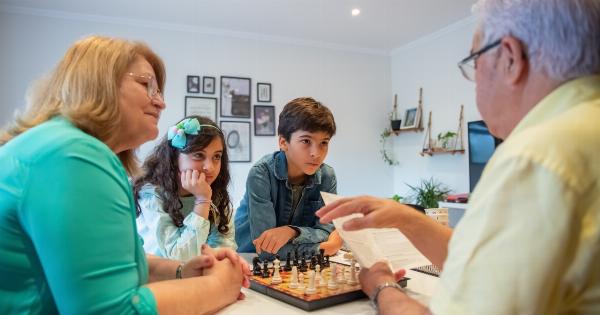Summer is a time when kids are free from the constraints of schoolwork, exams, and routines. It’s a time of exploration, adventure, and relaxation.
However, in today’s fast-paced world, children often find themselves constantly engaged in structured activities or glued to screens, leaving little room for boredom. While boredom may seem like a negative experience, it is actually essential for a child’s development and well-being. In this article, we will explore why kids need to experience boredom in summer and the benefits it can bring.
1. Fosters Creativity and Imagination
When children are constantly busy with activities and entertainment, their minds are occupied with external stimuli, leaving little room for internal reflection and creativity.
Boredom allows children to tap into their imagination and come up with their own ways to entertain themselves. Whether it’s building forts, creating art, or engaging in imaginative play, children’s creativity flourishes when they have the time and space to explore their own ideas.
2. Encourages Self-Reliance and Independence
When kids are bored, they are forced to rely on themselves to find something to do. This cultivates self-reliance and independence as they learn to entertain themselves without constantly relying on external stimulation.
By figuring out their own activities, they become more self-sufficient and develop problem-solving skills.
3. Enhances Attention Span and Focus
In a world filled with instant gratification, children are becoming increasingly accustomed to constant stimulation and instant entertainment. Boredom, however, provides an opportunity for kids to practice patience and develop longer attention spans.
When children don’t have a constant stream of activities or distractions, they can focus on a single task for an extended period, improving their ability to concentrate.
4. Promotes Emotional Regulation
When kids experience boredom, they are often confronted with a range of emotions such as frustration, restlessness, and irritability. Learning to navigate these emotions in a healthy way is an important skill for emotional regulation.
Boredom gives kids the chance to recognize and manage their feelings, fostering emotional resilience.
5. Stimulates Curiosity and Learning
Boredom can be a catalyst for curiosity and learning. When kids have the freedom to explore their interests and pursue activities of their choosing, they are more likely to discover new topics and expand their knowledge.
Boredom provides the opportunity for unstructured learning, where children discover things they may not have encountered in a structured educational setting.
6. Inspires Inner Reflection and Growth
In our fast-paced society, children are constantly bombarded with external stimuli, leaving little opportunity for self-reflection. Boredom offers a chance for kids to engage in introspection and gain a deeper understanding of themselves.
It provides them with the space to reflect on their thoughts, emotions, and experiences, ultimately promoting personal growth.
7. Encourages Healthy Risk-Taking
When children are bored, they are more likely to engage in spontaneous activities and take risks. These can range from trying new sports, exploring nature, or initiating imaginative games with friends.
Healthy risk-taking helps children develop their decision-making skills and boosts their confidence in navigating new situations.
8. Cultivates Resilience and Problem-Solving Skills
Being faced with boredom allows children to confront challenges and find solutions on their own. They learn to overcome obstacles and adapt to changing situations, fostering resilience and problem-solving abilities.
Boredom provides a valuable space for children to develop important life skills that will benefit them in various aspects of their lives.
9. Strengthens Family and Social Bonds
When kids experience boredom, they often seek out the company of siblings, friends, or even parents. In these moments, they engage in unstructured social interactions, which deepen their relationships and strengthen family bonds.
Whether it’s playing board games, engaging in conversation, or exploring the outdoors together, boredom can bring families and friends closer.
10. Restores Energy and Well-Being
Constantly engaging in structured activities can lead to burnout and fatigue. Boredom provides kids with an opportunity to recharge and rest. It allows them to slow down, daydream, and simply be present in the moment.
This restoration of energy and well-being is crucial for their overall physical and mental health.
Conclusion
While boredom may initially seem like an undesirable state, it is important to recognize the valuable role it plays in a child’s development.
Boredom fosters creativity, independence, attention span, emotional regulation, curiosity, self-reflection, healthy risk-taking, resilience, problem-solving skills, social bonds, and overall well-being. Embracing a balance between structured activities and moments of boredom allows children to grow, learn, and thrive during the summer months.































